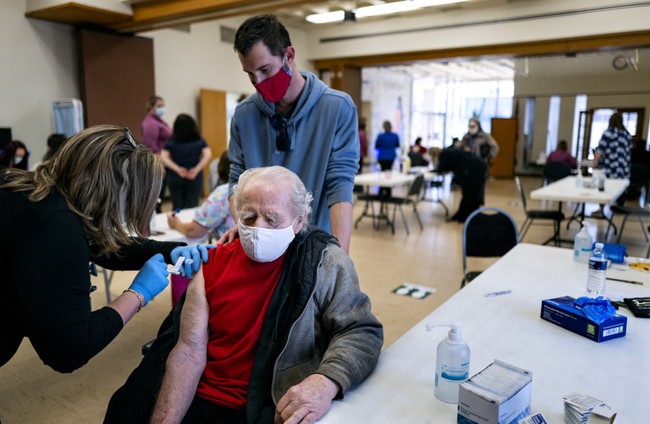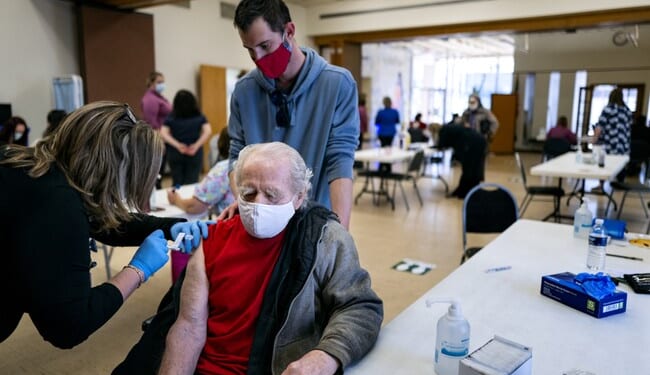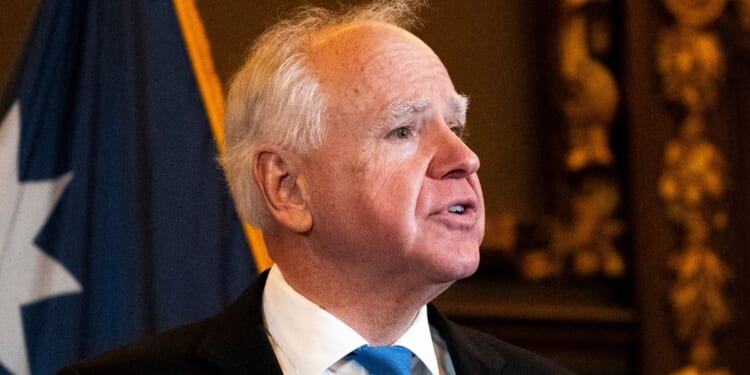
Have you heard the good news? The COVID-19 “emergency” is finally ending! Hallelujah!
The “emergency” actually ended on May 11, 2023. But you’d never know it because hundreds of billions of dollars authorized by Congress to “temporarily” increase funding for some programs during the pandemic are still flying out the door as if the “emergency” were still going on.
This is why the Democrats have shut down the government. They want COVID-19 “temporary emergency” subsidies for Obamacare to continue, even though there’s no longer a need to subsidize insurance policies written for upper-middle-class families.
Those families were never intended to receive any subsidies under the original Obamacare legislation. In fact, according to the Kaiser Family Foundation (KFF), a major cheerleader for Obamacare, higher-income families weren’t even purchasing Obamacare policies until the subsidies were offered during the pandemic.
KFF noted in 2024 that “Millions of enrollees have come to rely on the enhanced subsidies, with more people gaining Marketplace coverage since President Biden took office than had signed up for ACA Marketplace when the markets first launched in 2014.”
“Families across America are opening up letters and researching the new rates online and are seeing how their premiums will skyrocket if Republicans refuse to act on the health care crisis they created by refusing to extend the vital ACA tax credits,” sniffed Sen. Chuck Schumer (D-NY).
The “vital” tax credits to which Schumer refers are subsidies that reduce the cost of health coverage policies under Obamacare. These subsidies are necessary for political reasons because, as the Cato Institute’s Michael F. Cannon puts it, “Obamacare offers junk insurance at outrageous premiums.” There’s no easy way to hide the low quality of the coverage, but subsidies can take the sting out of the price.
Obamacare came with subsidies for low-income consumers built in. During the COVID-19 pandemic, subsidies were temporarily broadened, made more generous, and then extended by the misleadingly named Inflation Reduction Act. “The enhanced subsidies increase the amount of financial help available to those already eligible and also newly expand subsidies to middle-income people, many of whom were previously priced out of coverage,” according to KFF, a health policy think tank.
Reason.com notes that the “Congressional Budget Office (CBO) estimates that permanently extending the enhanced subsidies would increase the deficit by $350 billion from 2026 to 2035.” That’s lowballing it, says the National Taxpayer Union. The NTU sees expanded subsidies adding $410 billion over ten years to the deficit.
NTU’s Chief Economist, William McBride, warns that extended ACA premium tax credits “are but one of many federal subsidies and tax preferences for health care, making this sector by far the most heavily government-subsidized sector in the economy.”
He added that “healthcare spending has grown to almost one-third of the federal budget and, combined with tax preferences, now exceeds $2 trillion or 8 percent of GDP. These subsidies are forecasted to continue growing faster than the overall economy, making reforms that control costs imperative to achieve a sustainable fiscal trajectory.”
This is sort of a fancy way of saying that Obamacare is part of a range of very expensive federal programs intended to insulate Americans from all the things they don’t like about health care. None of the programs do anything that actually improves the quality of health care, nor do they help to lower its cost. Instead, at growing expense, they hide the burden and put off the day when reforms will have to be implemented. Calling Obamacare a scam isn’t an exaggeration. It not only delays real reform; it’s also easily gamed to line grifters’ pockets.
Last year, The Wall Street Journal‘s Joseph Walker reported that “hundreds of thousands of low-income Americans were unknowingly signed up for government-subsidized health insurance, often lured by social-media ads falsely promising cash for daily expenses.” Insurance agents got commissions for signing people up, and generous “temporary” enhanced subsidies meant the government footed the bill—not the people who often didn’t even know they had been signed up for Obamacare coverage.
The Cato Institute states, “If government regulations are making your health insurance too expensive or limiting your choice of treatments or providers, those regulations should be optional. You should have the right to choose better, more affordable health insurance” by opting out of regulated coverage.
Unfortunately, that’s easier said than done if your only option is subsidized policies.
Related: The Democrats’ Civil War Is Funded by Fantasies
There are immediate reforms that would help ease price increases. Allowing individuals to purchase insurance in any state and be able to carry the policy wherever they go would open Obamacare exchanges up to some much-needed competition. Also, easing rules on selling group insurance policies so that small businesses and other entities could insure members and small groups for less can be enacted immediately.
“Rather than continuing to subsidize the ACA and other inefficient healthcare programs, lawmakers should use this opportunity to change course and institute reforms that might finally ‘bend the cost curve’ in health care downward,” concludes the Tax Foundation’s McBride.
All additional funding that was appropriated during the pandemic to deal with the “emergency” should be rescinded. That alone would reduce our deficit by hundreds of billions of dollars.
The Schumer Shutdown won’t quit. Rather than put the American people first, Chuck Schumer and the radical Democrats forced a government shutdown over extended healthcare for illegals. They own this.
Help us continue to report the truth about the Schumer Shutdown. Use promo code POTUS47 to get 74% off your VIP membership.








